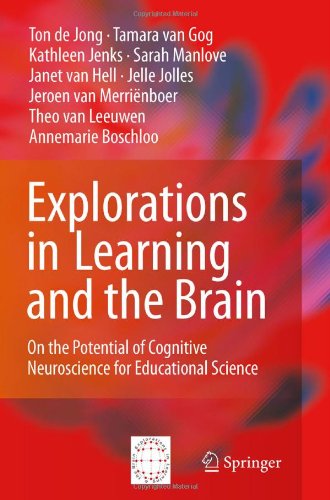

Most ebook files are in PDF format, so you can easily read them using various software such as Foxit Reader or directly on the Google Chrome browser.
Some ebook files are released by publishers in other formats such as .awz, .mobi, .epub, .fb2, etc. You may need to install specific software to read these formats on mobile/PC, such as Calibre.
Please read the tutorial at this link: https://ebookbell.com/faq
We offer FREE conversion to the popular formats you request; however, this may take some time. Therefore, right after payment, please email us, and we will try to provide the service as quickly as possible.
For some exceptional file formats or broken links (if any), please refrain from opening any disputes. Instead, email us first, and we will try to assist within a maximum of 6 hours.
EbookBell Team

4.3
18 reviewsThe past decade has witnessed efforts on the part of research, education and policy communities to create a dialogue about the potential relationship between cognitive neuroscience and the science and practice of education. The upsurge of interest in neuroscience in general has given rise to increased attention to the role of the brain in learning. As a result, several major initiatives have been undertaken to examine the viability of bringing the fields closer together.
However, much of the debate has been dominated by extremes. Some purport to offer a panacea to many of the problems in education and educational research on the basis of data from cognitive neuroscience while others perceive the gap between the fields as untenable. Explorations in Learning and the Brain takes a different stance in the sense that developments within neuroscience are not the starting point but rather sets off from major questions dominant in educational research, notably instructional systems design and related fields within the educational sciences. The book identifies interfaces between neuro-scientific and educational research, and informs on potentially interesting additions to educational research and viable interdisciplinary ventures. By drawing on empirical findings from both disciplines, the following general questions are addressed:
-Which principles, mechanisms and theories studied in educational research can be extended based on findings from cognitive neuroscience?
-Which principles, mechanisms and theories studied in cognitive neuroscience might have implications for educational research?
-What are these implications and what research questions can be developed?
-What form could an interdisciplinary or transdisciplinary research program take?